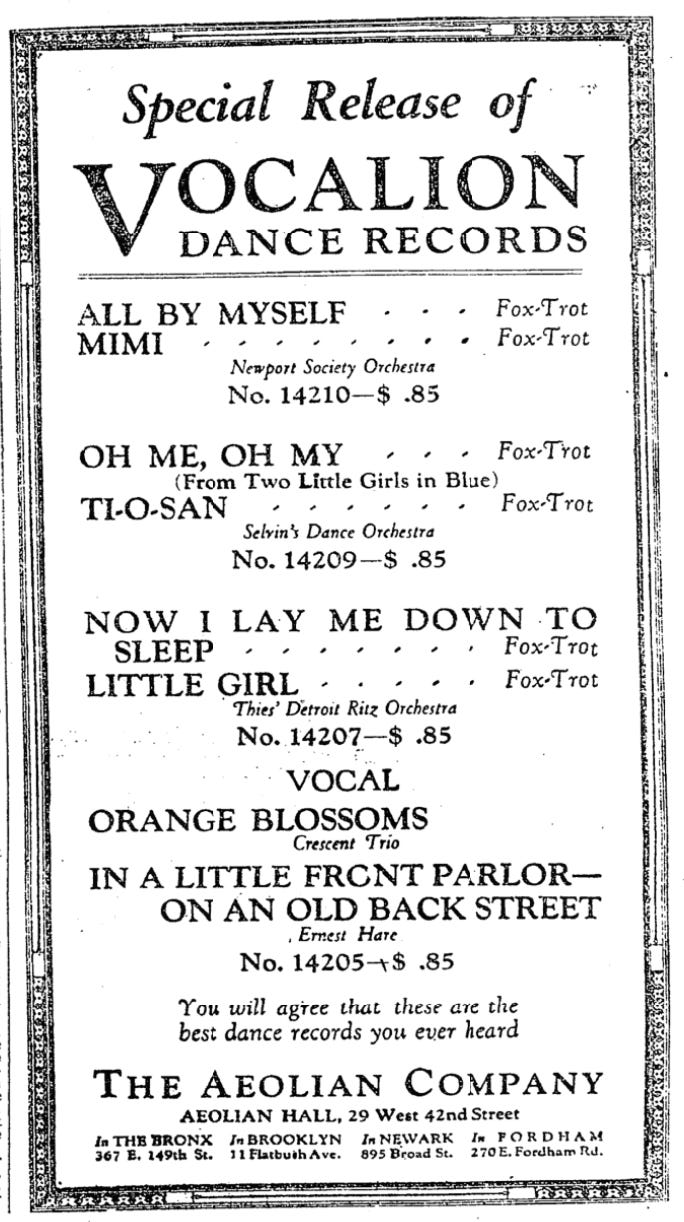Strange Times 192: Mother Pushed Son to Death
This week on the podcast, Henry and I dive into The Hudsucker Proxy, a movie whose whiz-bang energy is very much kin to Strange Times. We discuss the particular delight of fast-talking old timey newspaper fantasies, the hit or miss appeal of Tim Robbins, and Paul Newman’s exquiste grace. Tune in on Apple or Spotify or, well, whereever! And as a Thanksgiving gift to yours truly, take a moment to rate the podcast and hit subscribe.
Today we have a single nightmarish story of toxic mother love. Stay away from the damn cliff on…
July 11, 1921
Arthur Murphy, a 20-year-old veteran blinded by fireworks on the Fourth of July, falls to his death from the window of his room in the New York Eye & Ear Infirmary.
Margaret Hazelton, a tourist, dies “in an unusual way” at Coney Island, where she is swept out to sea while dozing on the sands.
Also at Coney Island, a subway car catches fire in the station but no one is injured or killed thanks to the quick work of the conductor, who detaches it and pulls the rest of the train away before the blaze spreads.
A gang of teenage joyriders run out of gasoline in the California desert, where they are rescued by a rancher and then arrested for stealing a car.
The Weather: Cloudy with local showers today and Tuesday; no change in temperature; moderate east winds.
The Times’ Paris Bureau continues to earn its keep, churning out story after story after story after story after story of mischief, murder and mayhem in and around the city of light. (That last issue is a personal favorite, by the by. There will never be a finer heist!) This tale is a timely reminder to widows and widowers everywhere: if your beloved won’t marry you because of your kids, don’t murder your kids. Find a new beloved.
PARIS, July 10.—A story that reminds one of the tales of the wickedness of ogres toward their children will be told tomorrow in court at Quimper, near Finisterre, the extreme western corner of France, when Louise Niquet will be tried for the murder of one of her sons and the attempted murder of another.
The sole witness is the second son, and he now denies, in order to shield his mother, the story he first told when he escaped the fate that three months earlier had overtaken his brother.
The woman was a widow, living at Brest, while her two sons, Armand and Fernand, were boarded at school. In the Spring of 1918 she made the acquaintance of a man for whom she conceived a great passion. She wanted him to marry her, but he did not wish to do so because of the two children. From that moment, the Public Prosecutor will argue in court tomorrow, the woman had only one idea in her head. She wanted to rid herself of her two sons, and for weeks she planned how to do it. At last she came to a decision.
Making the excuse to the older brother that she was taking him on a journey, she took the younger, Fernand, from school and the same day he disappeared. Two months later the body of an unknown boy was washed up on the coast ten miles from the spot where the woman was last seen with her son. No suspicion, however, attached to her, as it was not known that one of her children had disappeared.
But then it came the turn of the elder. The success she had achieved in her first crime tempted the motehr to a repetition. Alone with the boy she went walking along a wild part of the coast, where the cliffs overhang the sea. But her courage failed her. The next day she tried again. While on the way to the coast she tried, the evidence says, to push the boy off a moving tramway and was prevented only by the quick action of an American soldier, who grasped the boy as he fell.
The incident did not turn her from her purpose. Once they arrived at a point where the cliffs overhung the sea she pushed him from behind. Such, at least, is his story, told half an hour later. He fell, but, older and more active than his brother, he caught at the edge of the cliff as he fell, and after a few minutes succeeded in scrambling back to safety.
“My mother held out her hand to help me, but I wouldn’t take it,” he said, “because I knew that she would just push me back.”
Bleeding and bruised, he reached the house where, in her presence, he accused his mother. She denied nothing. Later, however, the boy, realizing the seriousness of the charge he had made, sought to shelter his mother by a denial. But the police had begun an inquiry into the fate of the other boy and, in the French fashion, to reconstruct the crime. Carefully they exhumed the body of the unknown boy and examination of the fragments of the clothes proved that it was that of Madame Niquet’s son. Then they set to work on an examination of the tides and currents of the coast and proved it possible that the body might easily have been carried from the point where the second crime was attempted to where it was found. On such evidence, the woman will be judged tomorrow.









